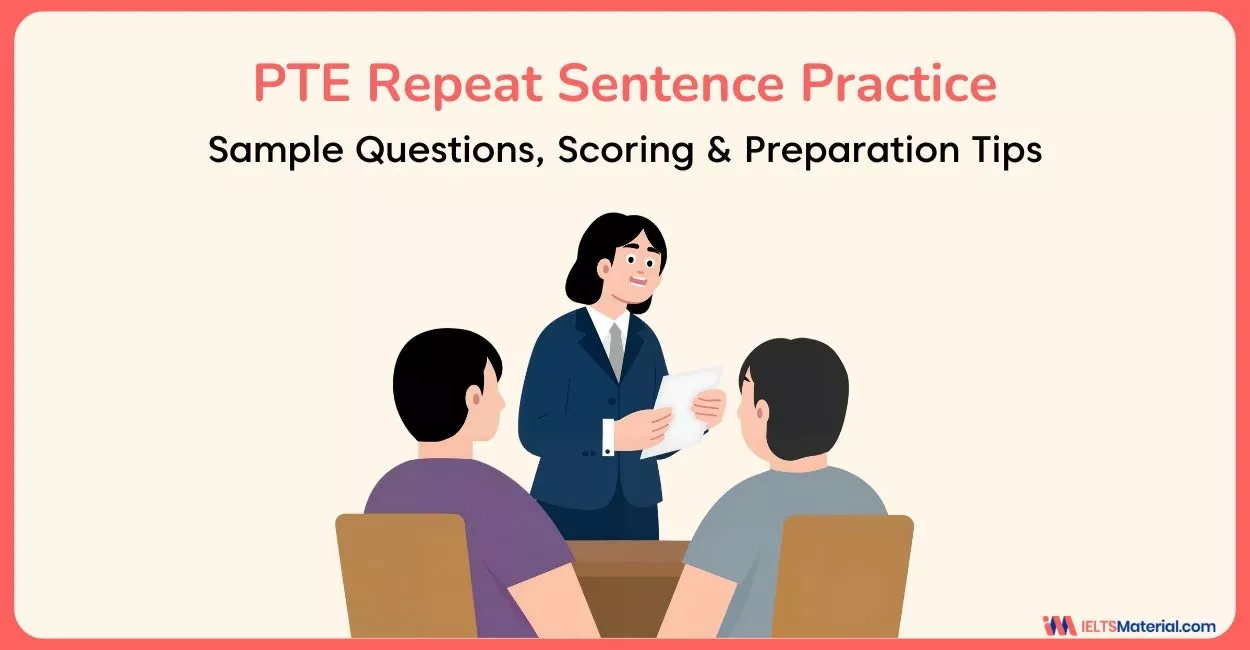8 Unconventional Creative Ways to Learn English Effectively for IELTS
8 min read
Updated On
-
Copy link
Explore eight unconventional ways to learn English effectively for IELTS. From hobbies related to language learning and literature to podcasts, movies, and TV series, boost your IELTS vocabulary, grammar, and fluency in fun, engaging ways that truly work!
Table of Contents
- 8 Unconventional Creative Ways to Learn English Effectively for IELTS
- 1 Embrace Immersion: Surround Yourself with English
- 2 Talk to Yourself: Practice Shadowing with Movie Scenes or TED Talks
- 3 Participate in Online Debate: Use Forums or English Discussion Groups
- 4 Incorporate English into Your Hobbies: Learn While Doing What You Love
- 5 Utilize Technology: Make Use of Language Learning Apps & Social Media
- 6 Step into Role-Playing Scenarios: Play Role-Playing Games (RPGs) or Join Language-Based Simulations
- 7 Engage in Language Experiments: Make Learning Fun
- 8 Create Mind Maps of Common Topics
- Bonus Tip: Explore English Podcasts and Audiobooks

Limited-Time Offer : Access a FREE 10-Day IELTS Study Plan!
Preparing for the IELTS exam does not always have to mean endless grammar exercises or monotonous reading comprehension exercises. While traditional methods are important, blending in creative, unconventional ways to learn English can dramatically improve your language retention, fluency, and confidence.
In this blog, we explore eight unique and engaging ways to learn English more effectively, perfect for those aiming for an IELTS band score of 7 and above. So, whether you are a beginner seeking to grasp basic English grammar or an advanced learner aiming to refine your fluency, these unconventional techniques will provide a fresh perspective on your language-learning journey.
8 Unconventional Creative Ways to Learn English Effectively for IELTS
Let us explore the 8 unconventional ways to learn English effectively for the IELTS exam and beyond.
1 Embrace Immersion: Surround Yourself with English
One effective way to accelerate your English language learning is through immersion, that is, becoming completely involved in learning the language.
The easiest ways to immerse yourself in an English-speaking environment are to watch movies, TV shows, and documentaries in English, listen to English music, and engage with native English speakers.
This visual approach helps you absorb the language naturally and improve your listening and comprehension skills. Watching TV shows is always a fun-filled way to learn a language!
2 Talk to Yourself: Practice Shadowing with Movie Scenes or TED Talks
Shadowing is a powerful language learning technique that mimics how children acquire their first language through listening and immediate repetition. It helps improve pronunciation, intonation, rhythm, and natural fluency. By imitating native speakers, learners develop a more authentic accent and better speaking pace, which is especially helpful when aiming for a high score in IELTS Speaking.
Start by selecting short, high-quality English audio or video clips, such as a scene from an English movie or TV series with clear dialogues/ a 2–3 minute excerpt from a TED Talk or BBC documentary/ a speech, or a monologue on an IELTS-relevant topic like technology, climate change, or education.
Use the following method:
- Listen to the clip once without reading subtitles.
- Play the clip again and repeat each sentence immediately after the speaker—try to match their pace, emotion, and tone.
- Record yourself and compare it to the original. Focus on areas like word stress, linking sounds, and intonation patterns.
- Practice in chunks. Don’t try to shadow a whole 10-minute video at once. Start small and increase gradually.
This technique directly benefits the Listening Section, Parts 3 & 4, where academic lectures or complex conversations require good comprehension and familiarity with intonation patterns and the speaking test, especially in achieving fluency, accurate pronunciation, and clear expression in Parts 2 and 3.
3 Participate in Online Debate: Use Forums or English Discussion Groups
Engaging in online debates trains your mind to think critically, structure arguments, and express your views clearly, core skills required for IELTS Writing Task 2 and Speaking Part 3. When you engage in a live discussion or online comment thread, you are not just writing or speaking English; you are using it to convince, compare, contrast, and justify opinions. This interactive practice improves your reasoning and language flexibility.
How to do it?
- Join platforms like Reddit ( for discussion threads), Quora (to ask and answer questions with well-structured, argumentative writing), Facebook or Telegram IELTS groups (for topic-specific chats and informal debates).
- Choose trending or IELTS-like topics.
- Respond using academic-style English, employing linking words (e.g., furthermore, however, on the contrary) and supporting your ideas with examples or logic.
- You can also record your responses in voice notes before posting. This doubles as Speaking Part 3 practice and helps with real-time idea formation.
This method will prepare you for IELTS Writing Task 2 to train you to present clear opinions, build paragraphs logically, and use persuasive language, as well as for Speaking Part 3 to sharpen your ability to discuss abstract topics, support arguments, and use formal language spontaneously.
4 Incorporate English into Your Hobbies: Learn While Doing What You Love
Learning is most effective when it is tied to activities you genuinely enjoy. By including English in your everyday hobbies, you create an environment where language learning feels natural and enjoyable. This approach strengthens your vocabulary, comprehension, and fluency, without feeling like ‘study time’.
Given below are some common interests and how you can learn English effectively from them:
- If you are passionate about cooking, try following recipes from English-language cookbooks or watching YouTube chefs like Jamie Oliver or Tasty. Not only will you pick up food-related vocabulary (e.g., simmer, sauté, whisk, garnish), but you will also get used to imperative structures, which commonly appear in IELTS Listening tasks related to instructions.
- Art & photography enthusiasts can engage with English tutorials. Follow art vloggers, painting channels, or photography blogs in English. Learn the terminology for colors, textures, equipment, and styles. Platforms like Skillshare or YouTube are filled with English-speaking instructors explaining techniques step-by-step.
- Fitness enthusiasts can subscribe to English-speaking workout channels like Chloe Ting, Fitness Blender, or MadFit. As you follow the workouts, you will become familiar with action verbs, body part names, and health-related phrases, perfect for IELTS topics on health, lifestyle, and well-being.
- Reading English literature and nonfiction is a powerful habit that elevates every language skill - vocabulary, grammar, comprehension, and even writing style. Begin with graded readers or adapted classics, and gradually move to original texts in genres that interest you - romance, thriller, science fiction, or biographies.
Want to Improve Your English Grammar?
Get Your Hands On Our Latest Grammar Ebook! Buy Now!
5 Utilize Technology: Make Use of Language Learning Apps & Social Media
In the digital age, language learning apps offer incredible resources to improve your English proficiency. Apps like Duolingo, Babbel, and Rosetta Stone provide interactive lessons, IELTS grammar exercises, vocabulary drills, and even speaking practice. Make the most of these apps by setting daily goals, tracking your progress, and incorporating them into your language learning routine.
Moreover, social media platforms offer a treasure trove of English content. Follow English-speaking content creators, influencers, and educators on platforms like Instagram, YouTube, and Twitter. Engage with their content, leave comments, and participate in discussions.
Here are our top 3 suggestions from Instagram for you to upskill your English learning!
- @bbclearningenglish
- @english.ingeneral
- @englishwithnab
Learning English while you scroll through social media is a leisurely way to gain knowledge. The above-mentioned are a few top-ranking Instagram pages to learn the language in a fun way, so make sure you try them for an effortless learning experience.
6 Step into Role-Playing Scenarios: Play Role-Playing Games (RPGs) or Join Language-Based Simulations
Role-playing immerses you in real-time decision-making and spontaneous communication, pushing you to use English in practical, everyday contexts. It is a dynamic way to build situational vocabulary, improve confidence, and simulate actual conversations you might face in IELTS Speaking Part 1 or 2. Whether you are playing a fantasy RPG or practicing realistic simulations like interviews or travel, you are training your brain to think in English.
How to do it?
- Join English-speaking communities on platforms like Discord, HelloTalk, or Tandem, where role-based practice is encouraged.
- Play language-based RPGs, such as ‘A Dark Room’ or text-based games where the story unfolds based on your typed decisions.
- Create real-life simulations with peers or tutors. For example: booking a hotel room, attending a university interview, or describing a lost item to a police officer
- Record your role-plays or conduct them on video calls to simulate test conditions.
- Try switching roles. Be both the examiner and the candidate. This helps you anticipate follow-up questions and prepare logically structured answers.
7 Engage in Language Experiments: Make Learning Fun
Language experiments can add excitement to your English learning journey. Here are some interesting language experiments that you can participate in:
- Challenge yourself to think and express your thoughts exclusively in English for an entire day.
- You can also create your own mini-English immersion experiences, such as setting your phone’s language to English or labelling objects around your house with English vocabulary.
- Use story cubes (like Rory’s Story Cubes) or online tools such as random image generators or websites like Unsplash and WritingExercises.co.uk. Select 4–6 random images and write a short story or narrative paragraph that connects them logically. Focus on using descriptive adjectives and adverbs, cohesive devices (e.g., meanwhile, consequently, however), and complex sentence structures. For a challenge, try timing yourself (20–40 minutes) to simulate exam conditions.
- Try reverse translation from your native language. It trains your brain to think in English and improves sentence construction. Write a paragraph in your native language, then try to translate it into English using IELTS-level vocabulary and grammar. Compare it with model answers to assess your accuracy.
These experiments or activities encourage creativity, improve vocabulary retention, and enhance overall language proficiency.
8 Create Mind Maps of Common Topics
Mind mapping is a powerful visual learning technique that helps you organize complex information, expand vocabulary, and enhance memory retention. For IELTS, where you are required to develop ideas quickly and structure your answers logically, mind maps serve as an excellent tool to pre-plan and store topic-based content in your mind. They allow your brain to associate related concepts, making recall faster and more effective during both the speaking and writing tests.
How to do it?
- Start with a central IELTS topic that frequently appears in the exam. Examples include education, global warming, technology, health & fitness, city Life vs. country life, etc.
- Write the central topic in the middle of a blank page or use a digital tool like MindMeister, Canva, or XMind.
- Branch out main categories, such as vocabulary (topic-specific nouns, verbs, adjectives), causes, effects, solutions, advantages/disadvantages, and personal examples or case studies.
- Add sub-branches to each category. For example, under ‘Global Warming > Effects’, you could add ‘rising sea levels’, ‘species extinction’, ‘climate refugees’.
- Color-code branches to help with recall, for example, red for causes, green for solutions.
- Use icons or simple sketches (like a factory for pollution or a tree for deforestation) to strengthen visual memory.
- Keep a mind map journal and build one map per week on different IELTS topics. Review them regularly before mock tests or speaking practice.
This helps mostly in Writing Task 2, where you plan essays quickly by organizing arguments and supporting details before writing, Speaking Parts 2 & 3, where these offer ready-made content banks you can draw from while discussing abstract or detailed topics and the reading & listening sections, as familiarity with these themes boosts comprehension when these topics appear in texts or audio.
Wanting to Master Your English Vocabulary On Various Topics?
Grab Our Best-Selling Vocabulary Ebook Now!
Bonus Tip: Explore English Podcasts and Audiobooks
Podcasts and audiobooks provide a unique auditory learning experience. Tune in to English podcasts covering a wide range of topics, such as TED Talks, language learning podcasts, or podcasts related to your interests.
The following are 5 top podcast suggestions for you to gear up your English language learning journey with Spotify!
- Everyday Language
- English at Home Is Fun
- The Living in English 365 Podcast
- Learning English Meditation
Thus, learning English doesn’t have to be limited to traditional methods. By embracing immersion, engaging in language experiments, incorporating English into hobbies, and utilizing technology and online resources, you can take your language learning journey to new heights. Remember to practice English speaking regularly, explore unconventional techniques, and have fun along the way. So, embark on this exciting adventure, and watch your English skills soar!
Useful Links:
Frequently Asked Questions
Can unconventional methods really help me learn English effectively?
Are unconventional ways to learn English better than traditional IELTS preparation techniques?
How can I incorporate these unconventional methods into my existing language-learning routine?
Are these unconventional methods suitable for all proficiency levels in English?
Are unconventional methods effective for test preparation, such as exams like TOEFL or IELTS?
Are there any potential challenges or drawbacks associated with using unconventional approaches to learning English?
How long does it take to see results from these fun and unconventional IELTS study methods?
Explore IELTS related articles

Start Preparing for IELTS: Get Your 10-Day Study Plan Today!
Explore other IELTS Articles

Haniya Yashfeen

Kasturika Samanta
Recent Articles

Nehasri Ravishenbagam

Nehasri Ravishenbagam

Haniya Yashfeen







Post your Comments